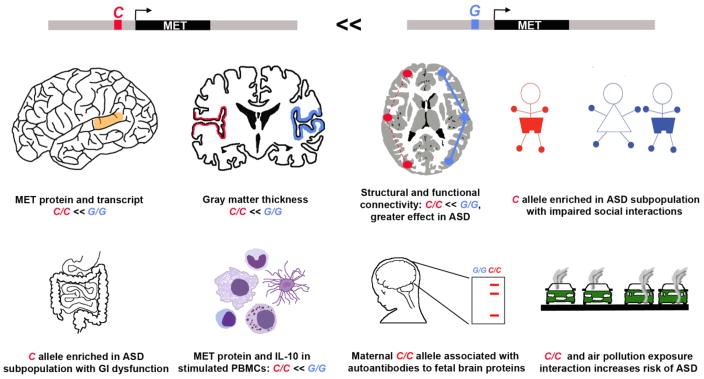Figure 1. The MET promoter variant ‘C’- allele is associated with children with ASD in multiplex families and influences development and function of human brain and peripheral organ systems.
A common ‘G’-to-‘C’ single nucleotide polymorphism in the MET promoter results in a 50% decrease in promoter activity. Because the ‘C’ variant is biologically functional, it is associated with specific phenotypes in typical individuals and those diagnosed with ASD. From Top Left to Lower Right: In the typical population, reduced levels of MET protein in the temporal cortex correlate with the C/C genotype. People with ASD have reduced MET, irrespective of genotype. Human neuroimaging studies demonstrate reduced gray matter thickness in MET-expressing cortical regions and altered functional and structural connectivity in C/C individuals independent of diagnosis. The phenotype effects are greater in people with ASD. Examination of ASD subgroups based on behavioral and biomedical phenotypes shows an enrichment of the C/C allele in children with ASD whose social communication is more impaired, and in children with ASD who have co-occurring gastrointestinal (GI) dysfunction. In the immune system, levels of MET in activated peripheral blood mononuclear cells (PBMCs), critical components of the immune system, isolated from individuals with a C/C genotype is approximately half that from those with G/G. In addition, the C/C genotype is enriched in mothers who produce ASD-associated maternal antibodies that recognize brain proteins expressed only in the fetus. Finally, there is an increased risk of ASD in children with the C/C allele whose mothers had been exposed to high levels of air pollution during pregnancy, suggesting an interaction between genetic and environmental burdens that influence ASD risk.

